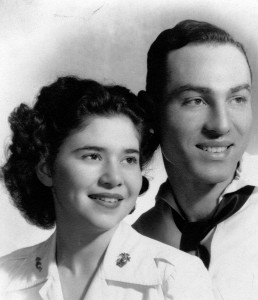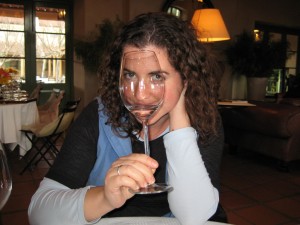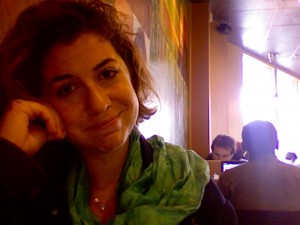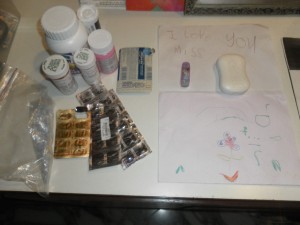
It’s been 67 years since my paternal grandparents posed for this wedding photo. When I sit for mine, I won’t be as young as they were and I doubt I’ll be serving in the military. But I hope I’ll express their energy and integrity — I hope to this day I have, and will continue to do so, regardless of nuptials. What an honor that would be, and what a blessing to have benefited from my grandparents’ (and parents’) examples.
My father, their proud son, wrote the following biography for the Illinois Holocaust Museum and Education Center in Skokie (the city in which all four of my grandparents resided for decades, and my parents went to high school):
Eleanor Harris of Chicago, IL, enlisted in the Marines with her best friend, Mary Arkes, in 1943, when they were both 19 years old. Eleanor left Roosevelt College in Chicago and was sent to Washington, DC, as a Private 1st Class, where she worked in a clerical capacity believed to be in the Department of Maps. Justin Felt enlisted in the Navy in 1942, even though it represented a hardship since he was the sole support of his mother. He was first sent to the University of Minnesota for special courses based upon his initial entrance exam scores. Upon completion, he was assigned, as an Electrician’s Mate 3rd Class, to a secret project in Virginia involving torpedo guidance systems. Eleanor and Justin met in Chicago while both were on leave, the result of a blind-date “fix-up” from a mutual friend. They continued to correspond by mail and met when they could since both were stationed on the East Coast. They married in July 1945, while both were still in the service, just before both were returned to civilian status. Eleanor became an elementary school teacher and Justin returned to his position in the composing room of the Chicago Sun (later to become the Sun-Times). They were married for 45 years until their passing 5 months apart in 1990. They are survived by 2 sons, Richard and Robert, 3 grandchildren, and 2 great-grandchildren to date.
I remember the day my grandpa died. It was the first time I’d seen my father cry. This is what Dad emailed today to my uncle, brother, sister, and me:
Today was the 22nd anniversary of my father’s (Yosef ben Moshe) passing. I chanted the haftorah and associated prayers in his memory at shabbos services today, and also told a story about him to the congregation. I’m not sure if you ever heard it, but Mom had not, so here it is.
It goes back to the 50’s when dad worked for the Chicago Sun (later to merge with the Daily Times to become the Sun-Times) in the composing room. Television was in its youth then (we got our first, a Motorola floor-cabinet model in 1951), and dad and his printer-friend Jack Vrtjack decided that there could be a bright future in radio/TV repair. They were both very handy and soon became quite proficient (self-taught) in electronic repair. They dreamed of their own business, free from the shackles of corporate employment. But they decided on a trial-run, before they quit their day jobs.
One day, dad got a call from a woman whose set did not work. She turned the ON knob but to no avail. Dad came home from work and drove right to her house in Chicago. She showed him the problem, and he moved to the back of the set while she watched him work. There was high-voltage danger associated with the picture tube, and so the set had to be unplugged from the wall even to remove the back panel. Dad traced the cord to the wall and saw that the plug was already ajar. Before doing anything with the back panel, he pushed the plug all the way into the outlet and retried the set. It worked. That had been the problem.
He put his tools away and informed the lady that the service-call charge was whatever. She refused to pay. She said that apparently there had actually been nothing wrong with the set, and he had only spent 2 minutes or so without having had to “fix” anything. He argued with her for awhile about his travel time, gasoline, etc, but upon realizing just the sort of mind that he was dealing with, he let it go and left without having been paid. Plans for a business based upon dealing with the public were scrapped, and Dad (and Jack) remained at the newspaper, Dad for 45 years.
I learned from Dad via this episode that there are times to dig-in one’s heels, stand firm, and fight. And there are other times when, after appropriate consideration of the issues and the relative merit of a hard line, it is better to disengage and live to fight another day for something really important. This lesson served me well during my years dealing with the public professionally, and in my private life in general as well.
How can I ever express my gratitude for such a rich inheritance?
- Memories of Elly Felt + an essay about Raymond Marcus, written by my then 14-year-old brother
- Stories about my maternal grandparents, Ruth Feldman Marcus and Raymond Marcus
- Interviews with Ruth Feldman Marcus, Barbara Marcus Felt, and a talk with Raymond Marcus
- Eulogies of Raymond Marcus
- WWII accounts of Raymond Marcus, Arthur Marcus, Bernard Marcus, and Charles Milner




